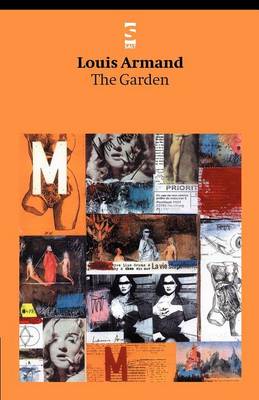Salt Modern Poets
2 total works
"Cool, postmodern," in the words of Kevin Hart. Armand's first published volume of prose explores - by means of a rigorous experimentation - the relations between "psycho-geography" and "geo-psychology"; between the stability and instability of place, personality and perception. In the verbal setting of The Garden (with its echoes of Bosch, Eden, the classical "forbidden garden" or the Perfumed Garden of Arabian literature), figures mesh in a half-light of memory and desire. The text moves fluidly between the exotic and the banal, the archetypally general and the minutely specific. Sometimes compared to the work of Claude Simon and Alain Robbe-Grillet, Armand's "unpunctuated" prose is less about the construction of imagistic or verbal ambiguity, than it is a way of writing with the ambiguities that exist already in the world, by virtue of the fact that the world is something "experienced." It is for this reason that Armand's language always remains "concrete," the language "tangible" - it is not about experiences but the experience itself.
Bringing together poetry published during the last six years, Strange Attractors is the most recent and extensive collection by the Prague-based award winning writer Louis Armand. Armand's themes shift between New York cityscapes and the Moroccan desert; from dissections of contemporary aesthetics, philosophy and politics, to reflections on human intimacy, the sympathetic faculty and violence. Among the most prolific and widely received poets of his generation, Armand's work has been described by Miroslav Holub as luminous with verbal innovation and critical insight. As the editor firstly of the Prague Revue and later of the PLR (Prague Literary Review) - Armand has participated in, and often presided over, many of the literary transformations and reformations of the decade since communism's collapse in central Europe. At the same time, Armand's work has remained strongly internationalist, eschewing the facile temptations of literary nationalism This volume confirms Armand's standing as a major figure of the Prague renaissance and the post-fin-de-siecle of English-language poetry internationally.

